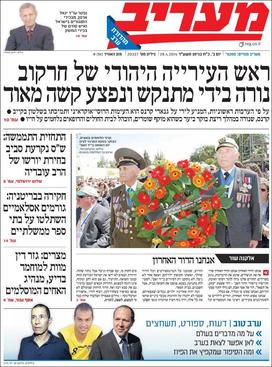
Maariv is a Hebrew-language daily newspaper published in Israel.

Yediot Achronot is an Israeli daily newspaper published in Tel Aviv. Founded in 1939, when Tel Aviv was part of Mandatory Palestine, Yedioth Ahronoth is Israel's largest paid newspaper by sales and circulation and has been described as "undoubtedly the country's number-one paper." It is published in the tabloid format.

Globes is a Hebrew-language daily evening financial newspaper in Israel. Globes was founded in the early 1980s and published in Tel Aviv, Israel. It deals with economic issues and news from the Israeli and international business worlds. The paper is printed on salmon-colored paper, inspired by the British Financial Times.

HaTzofe was a Hebrew-language daily newspaper published in Israel. In April 2007, it was reduced to weekly publication until its closing over a year later.

Davar was a Hebrew-language daily newspaper published in the British Mandate of Palestine and Israel between 1925 and May 1996. A similarly named website was launched in 2016, under the name Davar Rishon as an online outlet by the Histadrut.

Shemaryahu Yosef Chaim Kanievsky was an Israeli Haredi rabbi and posek. He was a leading authority in Haredi Jewish society on legal and ethical practice. Known as the Gadol HaDor and the "Prince of Torah", much of his prominence came through Torah education and advice about Jewish law.

Caroline B. Glick is an Israeli-American conservative journalist and author who lives in Efrat, in Gush Etzion. She writes for Israel Hayom, Breitbart News, The Jerusalem Post, Jewish News Syndicate and Maariv. She is an adjunct senior fellow for Middle Eastern Affairs at the Washington, D.C.–based Center for Security Policy, and directs the Israeli Security Project at the David Horowitz Freedom Center. In 2019, she was a candidate on the Israeli political party New Right's list for the Knesset.
Siddur Sim Shalom refers to any siddur in a family of siddurim, Jewish prayerbooks, and related commentaries, published by the Rabbinical Assembly and the United Synagogue of Conservative Judaism.
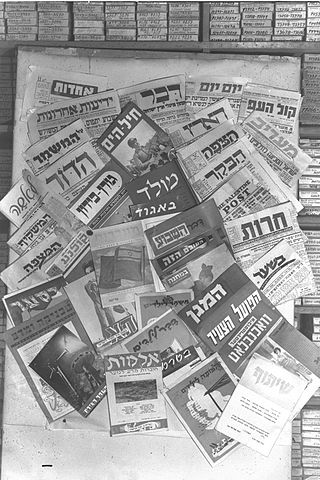
There are over ten different languages in the Israeli media, with Hebrew as the predominant one. Press in Arabic caters to the Arab citizens of Israel, with readers from areas including those governed by the Palestinian National Authority. During the eighties and nineties, the Israeli press underwent a process of significant change as the media gradually came to be controlled by a limited number of organizations, whereas the papers published by political parties began to disappear. Today, three large, privately owned conglomerates based in Tel Aviv dominate the mass media in Israel.

Israel Hayom is an Israeli national Hebrew-language free daily newspaper. Distributed for free around Israel, it is the country's most widely distributed newspaper. Owned by the family of the late Sheldon Adelson, a businessman and political donor, Israel Hayom has been noted for its editorial stance and coverage of Israeli politics, often sparking debate about its political alignment.

Mishpacha- Jewish Family Weekly is a Haredi weekly magazine package produced by The Mishpacha Group in both English and Hebrew.

The Zomet Institute is an Israeli high-tech non-profit organization specializing in IT equipment and electronic appliances designed to meet Halakha.
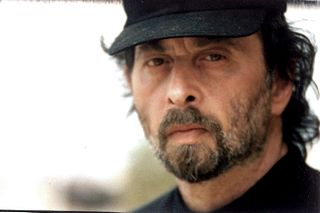
Adam Baruch was an Israeli journalist, newspaper editor, writer and art critic.
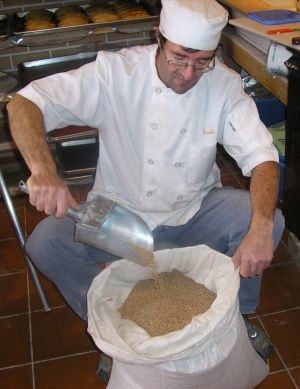
Saidels Bakery was the first true artisan bakery in Israel. Established by Les and Sheryl Saidel in 2008 and located in the Samarian village of Karnei Shomron, the bakery was originally opened to fill a need for fresh-baked, authentic, artisan and organic healthy Jewish bread.
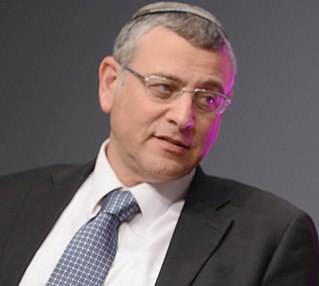
Binyamin Tzvi (Benny) Lau, is an Israeli rabbi, community leader, activist, author, and public speaker who lives in Jerusalem. He is the head of 929: Tanach B'yachad and headed the Kehillat Ramban synagogue in Jerusalem for 18 years. He is also the head of the "Human Rights and Judaism in Action Project" at the Israel Democracy Institute. Previously, he was the director of a number of programs at Beit Morasha in Jerusalem, including their Center for Judaism and Society, their Institute for Social Justice, and their Israel Institute for Conversion Policy. He is also a well-known writer, and makes frequent appearances in the media.
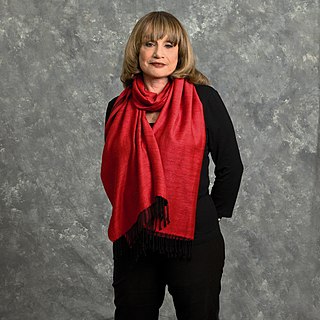
Judith (Yehudit) Weinstock is an Israeli author.

Hapeles is a Hebrew-language daily newspaper published in Jerusalem. Like other Haredi newspapers, it is not published on Shabbat, but, instead, is put out as an expanded weekend edition.

Nissan Tzur is an Israeli Journalist, correspondent for Eastern Europe, living in Poland. He is the recipient of the "Watergate Prize for investigative Journalism" of the Polish Journalist's Union (SDP) in 2013 for his article. He is the owner of the "Nissnews" website which focuses on Jewish and Israeli related news, including exclusive stories and investigative article. He is currently writing for the Israeli daily Maariv, Arutz 7, Davar Rishon, Walla News! and Makor Rishon.

Moshe Erel Segal is an Israeli journalist, satirist, columnist, media personality, radio broadcaster, publicist, and musician.

Dvar Malchus or Devar Malchot (Hebrew: דְּבַר מַלְכוּת Də var Malkh ûtlit. 'a royal thing' is a Torah study publication distributed weekly related to Chabad Hassidism, the center of which contains Maamarim and Sichos and other sacred conversations from Menachem Mendel Schneerson the seventh Rebbe of Chabad-Lubavitchwell as well as daily lessons in the Chitas Miomonidies and Hayom Yom.



















